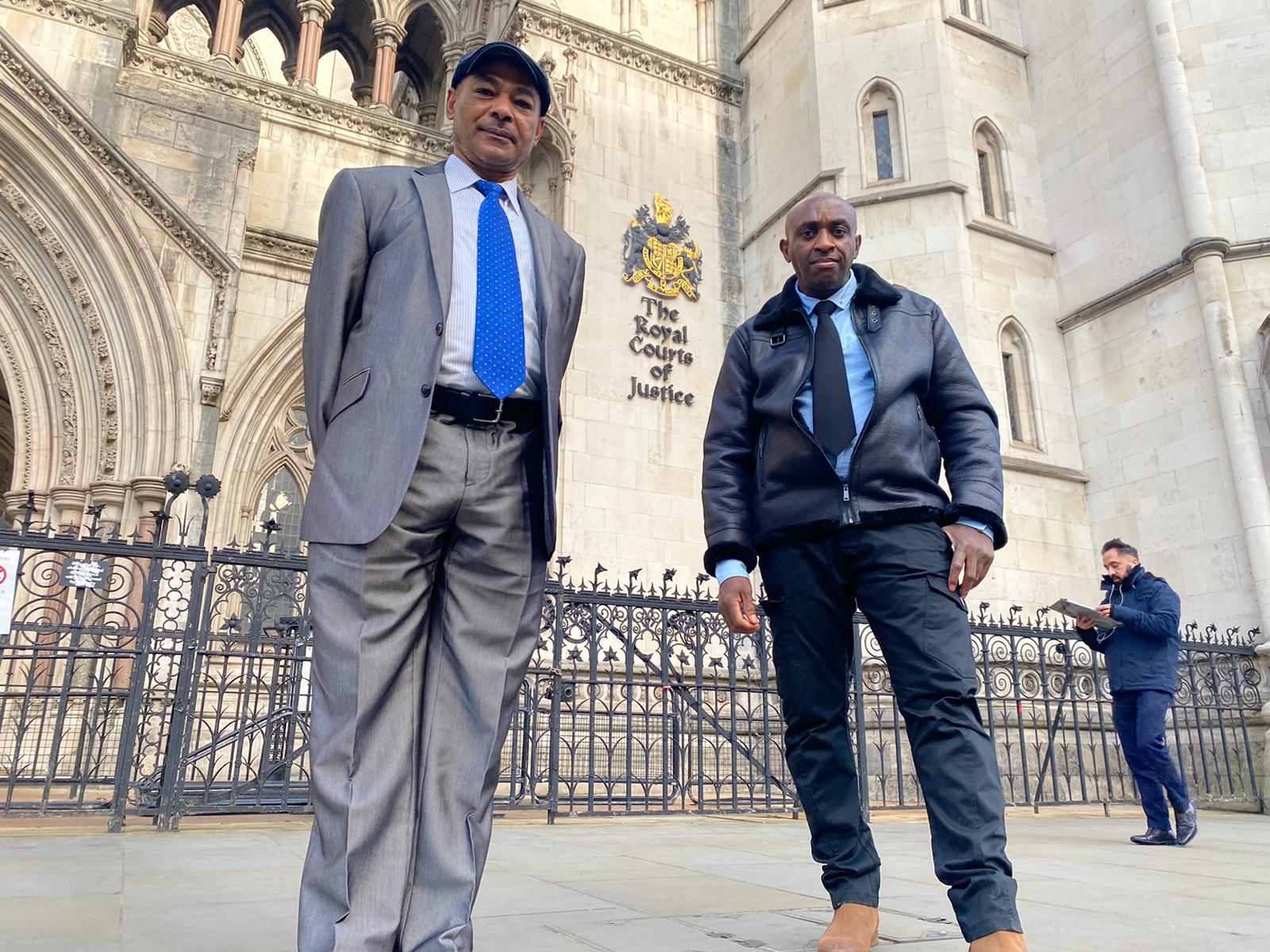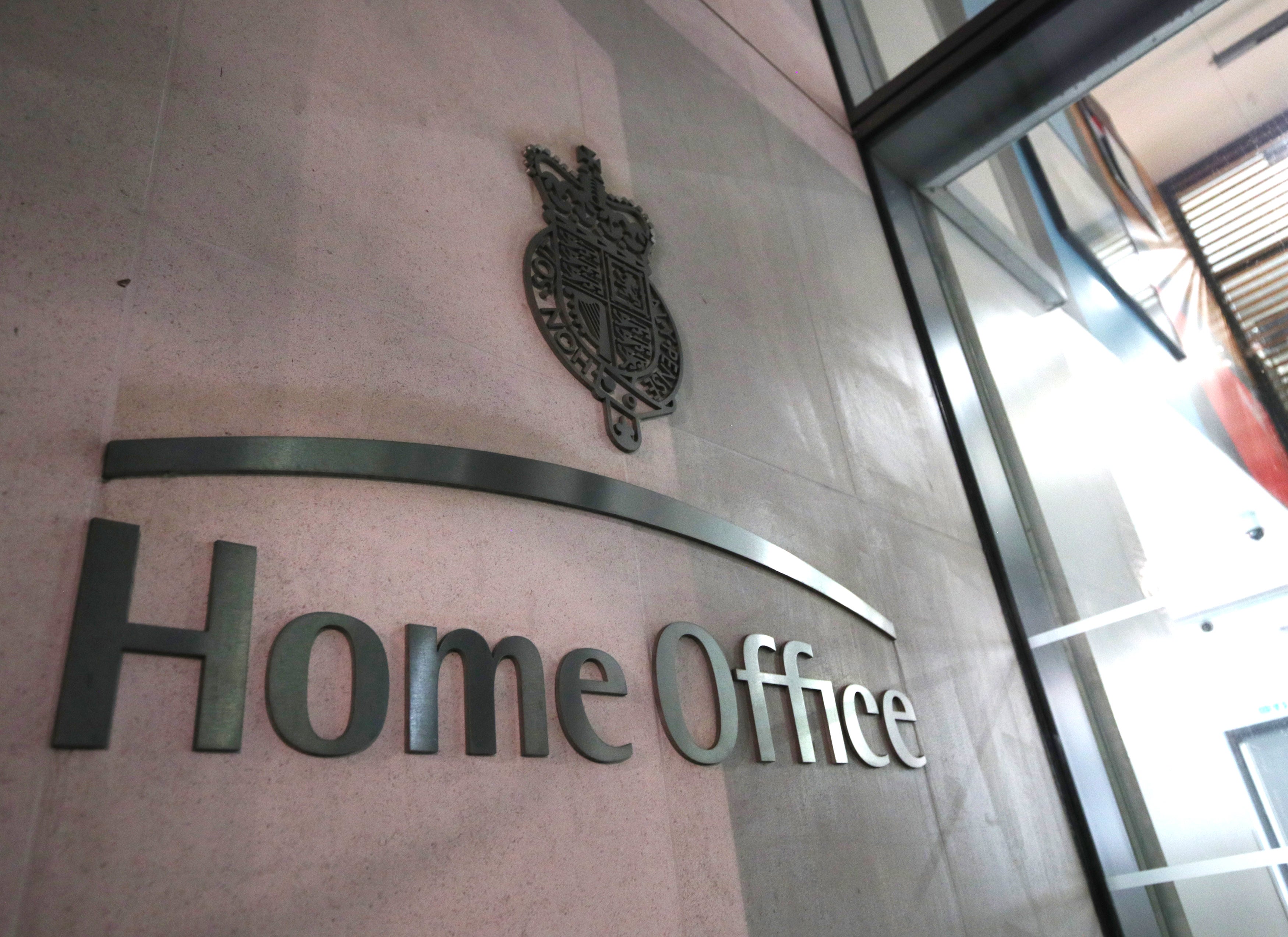Windrush compensation scheme ‘to be scaled back due to low uptake’ – despite claimants struggling to apply
Exclusive: Home Office minister downplays the impact of the scandal upon thousands of people
Your support helps us to tell the story
From reproductive rights to climate change to Big Tech, The Independent is on the ground when the story is developing. Whether it's investigating the financials of Elon Musk's pro-Trump PAC or producing our latest documentary, 'The A Word', which shines a light on the American women fighting for reproductive rights, we know how important it is to parse out the facts from the messaging.
At such a critical moment in US history, we need reporters on the ground. Your donation allows us to keep sending journalists to speak to both sides of the story.
The Independent is trusted by Americans across the entire political spectrum. And unlike many other quality news outlets, we choose not to lock Americans out of our reporting and analysis with paywalls. We believe quality journalism should be available to everyone, paid for by those who can afford it.
Your support makes all the difference.The Home Office is poised to scale back its Windrush compensation scheme because it is not getting enough applicants – despite campaigners criticising it as too hard to access.
Simon Murray, a member of the House of Lords and the parliamentary under secretary of state for migration and borders, confirmed that projections for the number of victims now expected to get payments would be reduced because “significantly fewer claims than initially anticipated have been received”.
The revelation comes after campaigners – including Labour MP Marsha de Cordova, Little Mix singer Leigh-Anne Pinnock, celebrity chef Levi Roots and crossbench peer Simon Woolley – wrote to home secretary Suella Braverman in June demanding that payouts be sped up as delays have meant dozens of people have died before getting compensation.
In a letter, Lord Murray said: “Despite extensive ongoing outreach efforts, significantly fewer claims than initially anticipated have been received. In light of this experience and information, the Home Office reduced its initial planning assumption first to 11,500 and then to 4,000-6,000, publishing an updated Impact Assessment in February 2020.”

Since the scheme’s launch in 2019, £65.78m has been paid across 1,757 claims and a further £11.98m has been offered, according to the government.
But there have been significant delays, with almost a fifth of those who received payments last year waiting over a year and the number of people who have died while waiting for payouts nearly doubling in two years.
Roland Houslin, 54, was born in the UK but moved to Jamaica with his parents in 1973. His family was repeatedly blocked from returning to the UK from 1975 because they had been out of the country for two years,a situation that caused them significant distress.
This “two-year rule” was enforced through the Immigration Act 1971, which came into force in 1973 and is responsible for tearing apart many British-Caribbean families. Mr Houslin eventually moved back to the UK in 1988, but his parents never could.
In 2021, he applied to the compensation scheme, along with his elderly mother, but their claims were declined due to “insufficient evidence”. There is no element of the scheme for applicants who, like Mr Houslin, were born in the UK and subsequently locked out of the country, and this is causing delays, he said.
Mr Houslin said problems in providing documents demanded by the Home Office meant that his application and that of his mother were still being processed.
“For the Home Office, it’s all about optics and giving an impression that the scheme is working when it’s not,” he told The Independent. “The scheme is insulting to the claimants but it’s also abusive.”
When approached by The Independent, the Home Office refused to give assurances that the scaling back of the scheme would not have a detrimental impact on claimants.

Responding to the minister’s letter, Ms de Cordova said: “Instead of taking accountability for the lack of trust and confidence many have in the Home Office, it is instead reducing its planning assumptions for the number of estimated Windrush claimants. This is completely unacceptable.
“The government must commit to giving Windrush scandal victims the compensation they deserve.”
Dr Wanda Wyporska, chief executive of the Black Equity Organisation, told The Independent the Home Office had overseen a compensation scheme “so bureaucratic and complicated” that some victims had died before their cases could be resolved, while others had been too “traumatised and intimidated” to apply.
“Instead of scaling back the scheme, the Home Office should transfer its administration to an independent body focused on swiftly righting the wrongs done to the Windrush generation and delivering the compensation they deserve. Victim blaming is unconscionable,” she added.
Lord Murray’s letter also appeared to downplay the impact of the scandal on victims, suggesting that thousands of claimants did not suffer as a result of the discrimination and so needn’t apply for compensation.
“Although over 16,200 individuals had been provided with documentation confirming their status or British citizenship as at Quarter 1 2023, experience has been that many of them have not suffered losses or detriment owing to being unable to demonstrate their lawful status in the UK and so they have not needed to claim for compensation,” he wrote.

It comes months after Human Rights Watch published a damning report, criticising the government for administering a compensation scheme that carries an unreasonable burden of proof.
The charity said the requirement of applicants to prove they could not get a job because of their lack of lawful status was unreasonable because it might require tracking down a potential former employer, which may not be possible.
In his letter, Lord Murray rejected Human Rights Watch’s concerns.
L’myah Sherae, co-founder of the all-party parliamentary group for race equality in education, told The Independent Lord Murray’s comments made it “abundantly clear” that the Home Office does not understand the needs and experiences of the Windrush community.
“For the department to state that ‘many of them have not suffered losses or detriment’ is tone-deaf, and completely disregards the real, lived experiences of thousands of Black Britons here in the UK,” she said.
It is not the first time the Home Office has reduced the scheme. In 2020, it slashed its estimated payout totals from £112m to £86m.
And in June this year, it emerged that the Home Office had disbanded the unit tasked with reforming the department to avoid a repeat of the Windrush scandal after Ms Braverman dropped key commitments that would have increased independent scrutiny of immigration policies.

Ministers have previously acknowledged that distrust in the government is one reason for the low uptake – yet there has been no robust plan of action as to how the department plans to address this.
The department has previously been criticised for lowering its assumptions, based on low application numbers, rather than seeking to understand the reasons for the disparity.
A Home Office spokesperson said: “The whole of government remain absolutely committed to righting the wrongs of the Windrush scandal, and already we have paid or offered more than £77m in compensation to those affected.
“We continue to make improvements to the compensation scheme so people receive the maximum award as quickly as possible, but we know there is more to do, and will work tirelessly to make sure such an injustice is never repeated.”





Join our commenting forum
Join thought-provoking conversations, follow other Independent readers and see their replies
Comments